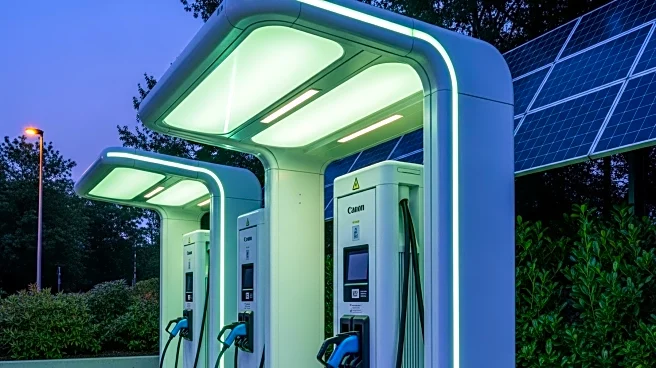What's Happening?
Kenya faces challenges in adopting electric vehicles due to high import duties and taxes, which significantly increase the cost for consumers. Despite having a clean energy grid, with renewables providing 90% of electricity, the adoption of electric cars remains slow. In contrast, electric motorcycles have seen increased market penetration, reaching a 7.1% share in 2024. Other African countries like Ethiopia and Rwanda have reduced or eliminated import duties, boosting their electric vehicle markets. Kenya's high fossil fuel import costs highlight the need for policy changes to promote electric vehicle adoption.
Why It's Important?
Reducing import duties on electric cars could catalyze their adoption in Kenya, leveraging the country's clean energy surplus and reducing reliance on fossil fuels. This shift would lower urban air pollution, decrease noise, and provide consumer savings through reduced operational costs. Encouraging electric vehicle adoption aligns with Kenya's green economy goals, potentially spurring investment in renewable energy and reducing the national import bill for fossil fuels.
What's Next?
Kenya may need to reconsider its import duty policies to facilitate electric vehicle adoption. Stakeholders, including government and industry leaders, could advocate for policy reforms to reduce or eliminate these duties. Such changes would support the growth of the electric vehicle market, aligning with environmental and economic objectives. Increased adoption could also absorb excess clean energy, prompting further investment in renewable generation capacity.
Beyond the Headlines
The slow adoption of electric cars in Kenya underscores broader challenges in transitioning to sustainable transportation. It highlights the need for comprehensive policy frameworks that support green technologies and address economic barriers. The situation also reflects the importance of aligning national policies with global environmental trends, ensuring that Kenya remains competitive in the green economy.










